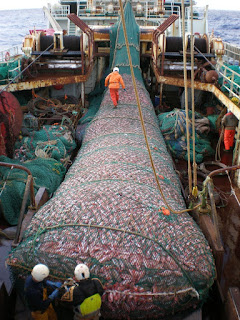Seaspiracy is a documentary film about the environmental impact of fishing. It was released at the end of March on Netflix.
Having seen the film, there can be no doubt in my mind that, to quote the film, “the best way to protect marine life is not to eat it” [1]
Several issues are covered including sustainability, bycatch, plastic marine debris, industrial trawling, conservation, and slavery.
The film questions the sustainability labels commonly attached to fish products.
With an estimated 2.7 trillion fish caught each year it claims the oceans will soon be empty.
It highlights the 300,000 dolphins and porpoises killed each year as bycatch, and that even ‘dolphin friendly’ labels cannot guarantee that dolphins are not killed when the product’s fish are caught
The ability of the oceans to store carbon is reduced by overfishing contributing to global warming
Some of the statistics have been challenged [2] but it is not intended to be a scientific treatise, rather it is making the irrefutable case that the marine environment is being destroyed by overfishing and that the overall state of fisheries are in severe decline
The verdict: Well worth watching
[1] https://www.netflix.com/gb/title/81014008
[2] https://www.theguardian.com/environment/2021/mar/31/seaspiracy-netflix-documentary-accused-of-misrepresentation-by-participants
